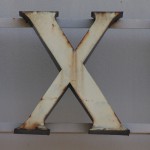Facing foreclosure is bad enough; worrying about your exposure afterwards is worse.
Breathe deeply.
California laws shield homeowners from further collection by a lender who has foreclosed.
Understanding Foreclosure Sales
To understand California’s protections for homeowners, you have to understand how a typical foreclosure sale works.
The deed of trust, given to the lender when a loan is made, grants the lender a lien on the home. If the borrower doesn’t pay as promised, the lender can exercise the power of sale in the deed of trust to conduct a public auction of the home that is security for the loan.
The lender can decide where to start the bidding at the foreclosure sale. While the lender can bid the entire amount that the lender is then owed, the lender can bid less when the property is worth less than the total debt.
So whether because the debt has grown large because it’s been in default for a long time, or whether the value of the house has dropped, the winning bid at a foreclosure sale may well be less than the total debt.
What happens to the difference between what the sale price at auction and the amount owed to the foreclosing creditor?
Antideficiency Law
Nothing happens to the deficiency if California Code of Civil Procedure 580(b) applies. This Depression-era statute says that if the loan at issue was made to buy the house and the borrower lived in the house, then the lender gets only whatever the foreclosure sale brought.
No deficiency judgment is available to the lender.
A non judicial foreclosure is not available to the lender on a purchase money loan for the borrower’s home.
That protection has been extended to refinances of the purchase money loan, to the extent of the amount of original loan.
c) No deficiency judgment shall lie in any event on any loan, refinance, or other credit transaction (collectively, a “credit transaction”) which is used to refinance a purchase money loan, or subsequent refinances of a purchase money loan, except to the extent that in a credit transaction, the lender or creditor advances new principal (hereafter “new advance”) which is not applied to any obligation owed or to be owed under the purchase money loan, or to fees, costs, or related expenses of the credit transaction.
So, if the lender made the loan for you to buy a property that you used as your principal residence, or the lender refinanced the loan used to buy your home, you have no risk of suit by the lender. Any shortfall between the value of the property and the amount of the debt is uncollectable.
But California law provides a second protection against mortgage deficiencies available to almost everyone.
Non Judicial Foreclosure Is Only Remedy
The broader protection from deficiencies is California’s one-action rule.
 It holds that a lender with a lien created by a deed of trust gets only one bite of the apple. If the lender chooses to foreclose under the power of sale in the deed of trust, that’s all the recovery it gets.
It holds that a lender with a lien created by a deed of trust gets only one bite of the apple. If the lender chooses to foreclose under the power of sale in the deed of trust, that’s all the recovery it gets.
The statute reads
There can be but one form of action for the recovery of any debt or the enforcement of any right secured by mortgage upon real property” Cal. Code Civ. Proc. § 726(a)
The foreclosure sale is the lender’s one action, and the borrower has no further exposure to the foreclosing creditor.
If there are junior liens that go unpaid as a result of the foreclosure, those creditors may have a right to sue for their debt, if they are not barred by the antideficiency statute we talked about above.
Virtually every foreclosure sale of a home or small multi family property goes by non-judicial foreclosure.
So, if you are worried about more grief from the mortgage company following a foreclosure, scratch that worry off your list.
More
Your rights while in foreclosure
You won’t believe how long this foreclosure took
After the foreclosure: cash for keys
Images: Shields courtesy of The Happy Rower and Flickr.
Apple courtesy of Wikimedia.







